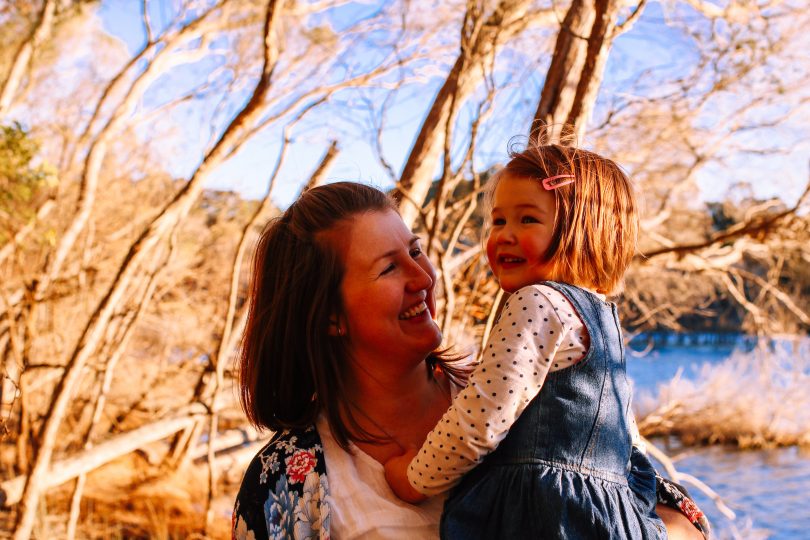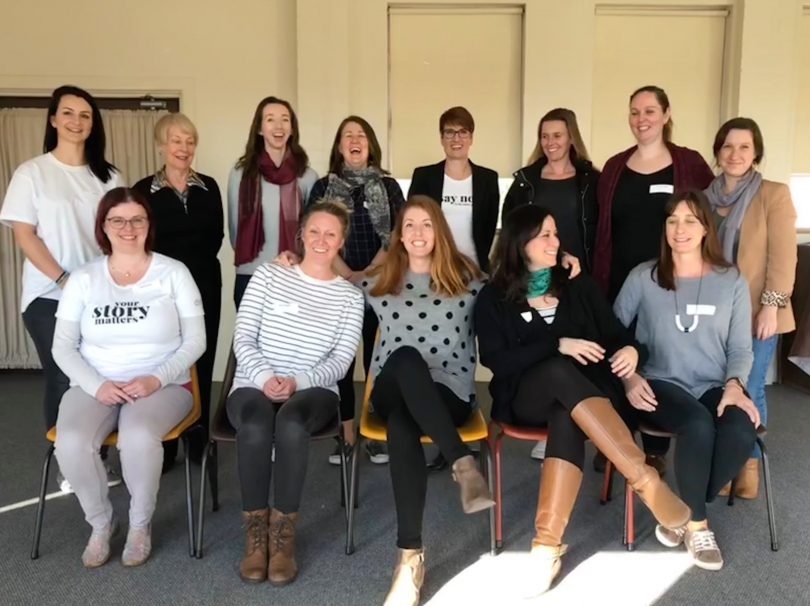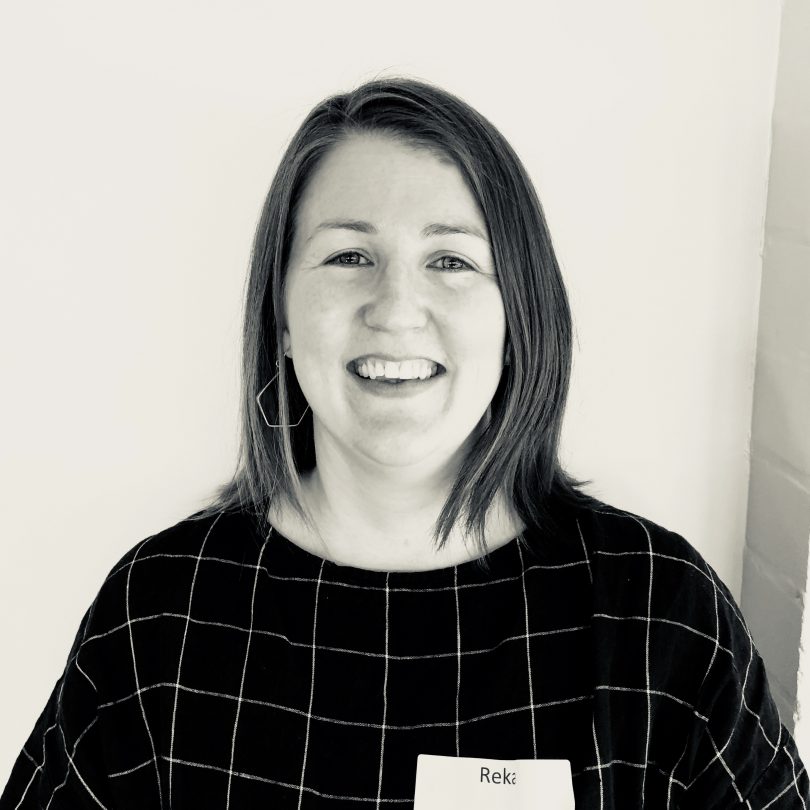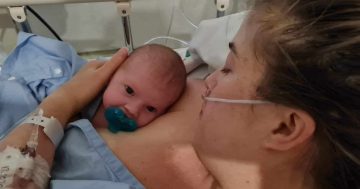
Reka Upward and her daughter Sadie, 3. Upward is passionate about helping women find the help they need to recover psychologically and physically from a difficult birth. Photo: Nikki Bragg.
What happened when Reka Upward gave birth to her daughter three years ago was “pure bad luck,” Upward says.
The baby curled an arm around her own neck during the long labor and as a result, became stuck, requiring a ventouse extraction and an episiotomy to come into the world.
The results left Upward and her daughter alive, but not unscathed – Upward suffered a stage 3 bladder prolapse, postnatal depression, and post-traumatic stress disorder as a result of her difficult birth, which she has since addressed with a combination of therapy, physio, and medication.
Upward’s experiences of birth and raising an infant under especially stressful conditions have left her with a desire to help others in similar situations and in August last year, she began training to become a peer-to-peer support worker with Australasian Birth Trauma Association (ABTA).

Reka Upward [back row, fourth from left] at the peer-to-peer training day for the Australasian Birth Trauma Association in Sydney in August last year. Photo: Supplied.
Psychological damage is sometimes, but not always, associated with physical damage, such as organ prolapse.
And as Upward explains, birth trauma is not always about what happened, but about how someone was treated.
“Informed consent is certainly important,” she says.
The social story around birth trauma is similar to all kinds of trauma and women are often treated much the same way as returning soldiers were – you made it out, now let’s never speak of this again, despite obvious injuries.
“We’re not allowed to mention bad things,” says Upward, “in case it puts women off having babies, but it’s so important to be informed of the risks of all kinds of birth.”
Because birth-related health conditions are often not diagnosed right away, many women suffer in silence for months or even years, not knowing if what they are experiencing is normal, says Upward, who did not seek help until her daughter was six months old.
The damage to mother, baby, and family by that time is done. There is no getting those first months with a new baby back and for this reason alone, Upward hopes that soon all women will be able to speak to a counsellor after birthing, as well as have an examination by a physio.
“All births are different,” says Upward, “and having the chance to talk in detail and debrief is so important. In the right environment, there is no such thing as too much information!”

Reka Upward, picture courtesy of Rachel Heyward of ABTA.
Upward has experienced trauma flashbacks and has had success using EMDR therapy, which is often used with PTSD sufferers.
“Basically, you focus on a specific memory fragment until you can return to that memory and it no longer causes trauma,” explains Upward, who was treated in Narooma.
Upward says that finding a good health care provider is key to good outcomes and urges women to keep looking if they don’t find a good fit.
Jasmin Peterson, of Tathra, suffered a bladder prolapse with her first birth and also encourages women to seek a second and third opinion, especially in regional areas.
“Don’t assume that complications in one birth will result in complications for subsequent births,” Peterson says.
Although Peterson was anxious about creating further damage with her second birth and had a breech baby [the baby was manually turned at 38 weeks], she says that birthing vaginally at full term was “exactly what I needed to recover my confidence” and left her with no further damage.
ABTA’s service may be especially useful for regional parents, who often don’t have ready access to specialists and immediate mental health support when a problem becomes apparent.
“It can be especially hard to find help when you live in a regional area – I relied on a phone service, Perinatal Anxiety And Depression Australia [PANDA], during the weekend I realised I needed help,” says Upward.
ABTA’s free service, which women can access through the ABTA website, is available Monday to Friday, 8 pm to 10 pm AEST. Women can chat for up to half an hour with one of 15 trained peer support mentors, including Upward, who have themselves been affected by a traumatic birth.








